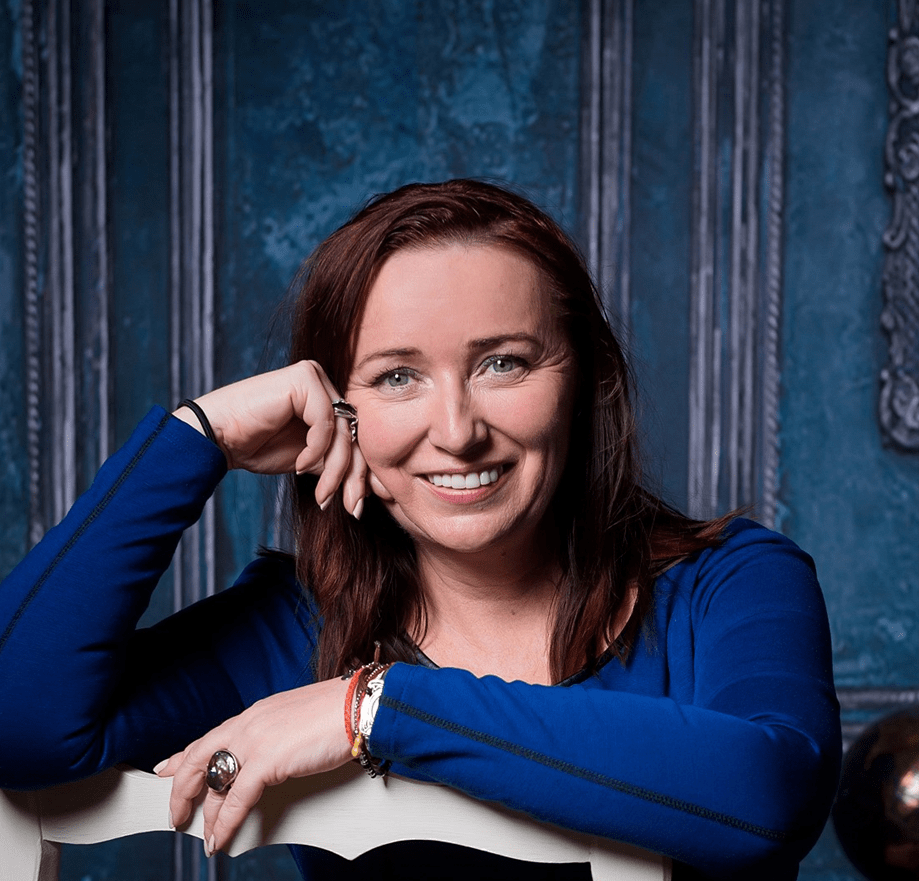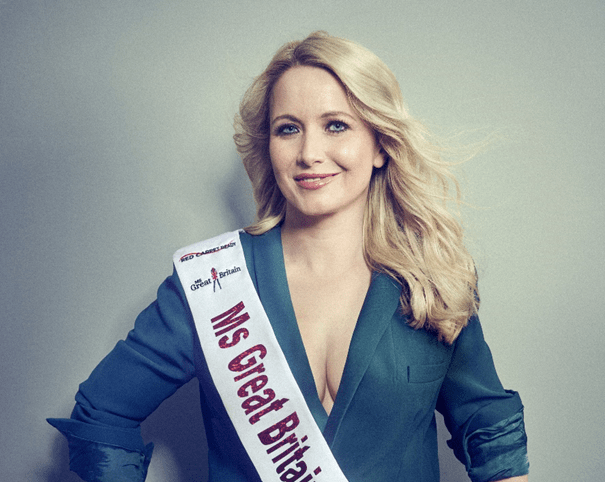70% of participants in my classes are women
Edward Gonsalves
70% of participants in my classes and workshops are women
Ed is Pathway Leader in Entrepreneurship for the MA Programme at the European Business School (London), Associate Professor of Entrepreneurship & Human Resources, Toulouse Business School (Barcelona) and Visiting Professor on the Executive MBA, ESADE Business School (Barcelona). He grew up in Nigeria and currently lives in Barcelona. Ed has a passion for Human Play in Decision-Making. He has 2 sisters who have taught him a thing or two about the glass and other ceilings facing women in entrepreneurship today! In this interview he also shares the experience of teaching at the University a class which is dominated by women entrepreneurs, and three of them are featured here in this article.
You teach entrepreneurship for students – why is this subject mainly attended by women?
I would say that when I started getting involved in entrepreneurship education twenty years ago, 80% of participants in my classes and workshops were men. Today, that has flipped to 60/70% women. This change is driven by multi-dimensional forces, both globally and more locally.
From your experience how would you describe the profile of a girl student who has a future in entrepreneurship?
In my experience and reflecting over about thirty women that immediately come to mind, I’m not sure that there is a single profile for a young woman with an entrepreneurial future. Nor am I sure that the women I am thinking of are necessarily significantly different from men as business founders. What I will say is that the women founders who I have worked with learn to listen to stakeholders notably more effectively than the men, and are able to keep contractual negotiations at a less adversarial level than their male counterparts. The latter tendency keeps negotiations open, flexible and more likely to succeed.
The women I have worked with are also more willing to draw support from their immediate family members. A wonderful source of psycho-social resilience, I think!
They also appear to pick themselves up much more productively after hitting road blocks in their ambitions for their businesses. A lot has been written about women founders’ emotional intelligence quotients. Anecdotally, this may be a reason for my observations, but I would not infer a systemic relationship between emotional intelligence and the success of women founders vis-a-vis men. I do believe that these are areas worth exploring when looking to find explanations for women founders’ recipes for success.
How do you motivate and prepare them to get into the real business after finishing the studies?
I use the 70:20:10 rule of learning, in which doing (70%) and experiencing experts (20%) are central to my approach. So, the first thing I do is place previous alumni and successful founders (men & women) in front of the newcomers. These alumni founders are asked to bring a real world, entrepreneurial challenge to the workshops for the aspiring entrepreneurs. The aspirants then offer their response a few weeks later to the founders who proffer their opinions and follow-up actions.
If I have advice on this then it is to encourage and facilitate 1-to-1 relationships to be sustained with these alumni outside of the University setting. Not quite a mentoring relationship, but more a senior-sibling relationship. A friendship. Role models, both men and women accelerate early and growth dynamics. It also helps to dispel and disrupt mythologies about being a start-up founder, early in the process. In summary, direct action with expert entrepreneurs.
How does the University encourage them to undertake real actions on starting their business?
Universities are able to follow-up on what goes on in the entrepreneurial class room by making connections and promoting their women founders with industrial partners. Through their Business Relations and Careers departments they are able to draw on a vast array of start-up employers, networks and resource pools. Through their Alumni offices they can connect with proven successes. Finally these advisory services are able to provide extensions to competences developed in the classroom e.g. “How to negotiate versus bargain”; “how do I deliver a winning investor pitch-deck?”; or for international founders: “how do we apply for various the entrepreneurial visas?”, etc, etc
Historically UK universities have been poor at fostering entrepreneurial behaviours in their student base. Traditionally, Vice-Chancellors have been focused on delivering academic and professional qualification outcomes, and in many instances consecutive UK government’s policies on enterprise are to blame for such underperformance. I am sure that many university-sector colleagues of mine will push back at such claims. It is true, things are changing, and for the better.
An example of how UK universities are progressing in this direction is the UK’s Entrepreneurial University of the Year Award. In the main though the entrepreneurial activity at universities is driven directly by the actions of the student population itself, through on-campus enterprise clubs and activities. In the UK for example, we have the amazing NACUE organisation which promotes entrepreneurship from the bottom-up. NACUE itself sprung out of direct student action and it’s foundation, accelerated success and growth can be put down to a woman, their ex-CEO: Hushpreet Daliwal!
What are your tips for young people who want to learn more about entrepreneurship classes?
The best way to learn about starting your own business, or working in a start-up and entrepreneurial environment is to speak to founders in your family and social network. Ask them what questions they suggest you ask the providers of entrepreneurship classes. Speak to the professors who lead the courses directly. Ask them about what has been achieved by previous students. Ask them what is special about their course. Ask them what you can expect to have gained beyond the certificate of attendance or formal qualification certificate as a result of taking their class.
Ed advises, consults and publishes in the area of Strategic and Entrepreneurial Learning and has over 15 years experience in new venture creation and growth. He is Founding Director at Cooplexity Institute, Barcelona, and Fabulyzer Wearables, UK.
70% of the start-ups from his work in entrepreneurship education over the last decade have been founded by women.
For more information about Ed connect with him on LinkedIn:
I always knew that I wanted to create something that would take me out of my comfort zone – Gozi Nwachukwu
Gozi Nwachukwu
Gozi runs the Achieve Workshop for secondary schools in the London area. The aim is to inspire, enable and support young people to achieve their chosen goals. The programme focuses on increasing self-confidence and self- esteem, which in turn has a positive impact on their academic prowess, their relationships with their peers and teachers at school as well as a positive impact on their home lives and wider community.
When I left full time employment a year ago to start my business, I was at a crossroads in my career. I knew that I wanted to do something bigger than what I was currently up to at the time. There were three main motivators that led me to start this business: Freedom (including time); the draw and craving for challenge; and the pull to offer something greater than myself to the world. For me, being an entrepreneur has always been about Freedom. Having a say in which direction my life is going and being able to freely create the next steps for a vision that speaks to me was a big motivator. Choosing and allocating where I spend my time, and pursuing the opportunities that running my own business would bring was a key motivator. It is very important to me to spend time on things that move me forward and propel me into creating a life that works holistically.
I always knew that I wanted to create something that would take me out of my comfort zone and have me playing full out in the world. A full life for me is one in which I put my stake in the ground and say I want to bring high levels of confidence and self esteem to teenagers and young adults. The draw and craving for a challenge in territories unknown, and I was ready for the unknown; the road less travelled, and knew that being on this path would offer great returns.
I do not think that being a woman can solely influence my success in business.
I’ve been very lucky in that the environments in which I grew up and to which I have been exposed, consistently taught me that in life, what is most important is to always believe that I can achieve anything that I set my mind to. My approach to every endeavour and task that I have undertaken thus far has always come from ‘what do I want to do and achieve?’ rather than from ‘what do I think I can achieve because of my gender, race, and nationality?’, which could be limiting. In my experience, I would say that business is business and when it comes to creating a vision, planning your steps and executing on your plan, the business does not take into account your gender with regards to failures or successes. So for me the simple answer is no, I do not think that being a woman can solely influence my success in business. The biggest influencer of my success in business so far has come from how many times I choose to stand up when I had fallen. As well as how I have navigated my way around challenges and obstacles, especially when things have not gone according to what I expected or planned.
My business runs workshops to increase self-confidence and self-esteem in teenagers and young adults, as well as to enable the young people to live life excited about themselves as individuals in the present and in their futures. As we are mostly in mixed classrooms, the programme does not focus on gender, however, we leave them with this: know yourself and what you want out of life at this given moment and let’s use that as a foundation to build upon. Have a foundation of integrity – learn to be your word; and finally, give your heart. By this we mean giving something of yourself to the world – put your stake in the ground and say, I was here, this happened. As an entrepreneur, the best summation of what will influence my success is (beautifully put by Nelson Mandela) “Don’t judge me by my successes, judge me on how many times I fell down and got back up again.”
“Since I was a little child, my passion was managing people” Doriana Garlucci
Doriana comes from a self-employed family and she grew up watching her parents working long hours and achieving amazing results from nothing. Since she was a little child, her passion was managing people and raising money to fund challenging projects. Determination and passion have allowed her to graduate in Entrepreneurial Management in a foreign country, start her own business and now manage a growing team. Entrepreneurs have the unique power to make changes, they are able to identify with customers’ pain and develop ingenious ways to make their lives easier. They can see before others the bigger picture of new challenging projects and they also have the abilities and skills to organise people, motivate them and together create something new.
The passion and willpower I have in creating a service that could add value to our clients has led me to start my own business. The incredible feeling of working for something that I personally consider my little creation motivates me on a daily basis. The satisfaction of knowing that it belongs to me makes the unsociable hours and working pressures all seem irrelevant and worth it. What is more, I am sure that this feeling will last forever, which makes it all invaluable. One of my greatest fortunes is to have a trustworthy business partner, Eliana D’Alessandro. We started Mind the Flat together from a double room in Fulham and four years on we are now competing for a business award as the Best Fulham Business. We spent over a year analysing in great detail the London letting market, and during this period we discovered an immense dissatisfaction generated from the immense fees transferred by both groups to agents. With the lack of communication between the parties and most of the time a poor service received, it does not justify the enormous fee paid, shared by both landlords and tenants.
By being an online estate agency, we are able to keep our costs down and thereby resolve this dissatisfaction. Our clients pay for our tailored, client focused, and our knowledge service. Our multilingual team are a source of confidence for our clients. I believe our transparency and customer care is what has made our company grow so fast in the last year or so. Starting a business in the UK requires three minutes of your time, however making it a success requires passion, determination and commitment in turning ideas into reality. We are building a successful business because we truly believe in it and input the effort, challenge and dedication required to give it new passion and fresh motivation on a daily basis.
To me, being a female entrepreneur has added value to my business
The real estate market is prevalently dominated by men, and women generally have a different mind-set, which in this case I believe works in our favour. In the last conference I attended which was less than a month ago, the percentage of women was roughly 5%. This could be viewed in a positive light because you inherently stand out and if you are good enough, a valuable winning point. Nevertheless, our society is quickly changing and more than half of the members of the EMEA (Europe, Middle East and Africa) listed in Fortune are headed by women.
My advice would be to think about your customer at every touch-point within your business. Our services are a representation of our skills, passions, talents and perspective but that is where “we” end. Everything after that needs to be about the value we place on our customers’ experiences. Women have the unique ability to absorb the full picture before others and handle difficult situations or clients in a more sensitive way. To me, being a female entrepreneur has added value to my business because it enabled me to be driven and dedicated whilst having a heart. Knowing how to deal with people and being prepared to see any problem as an opportunity is an ability every woman possesses; using such ability to my advantage has categorically added extra value to my business.
“I could offer the world what I had to give” – Amara Kanu
Amara had her first child at the age of 18. Juggling studying at university, being a new mum and a wife, was one big life experience and she had to grow up pretty quickly. By the time she had graduated from studying architecture, it was seven years gone and two more children. When it came to gaining an internship or a permanent job, it was all but impossible to balance the whole lot because being an architectural assistant meant a lot of late nights at the office and it was highly demanding of Amara’s time.
There were all sorts of mayhem in my life as a woman. I was a constant juggler and I didn’t want to get burnt out before I could offer the world what I had to give. Therefore, the simplest answer was to be able to have control of my time while delivering on design as well as taking care of my young family. I started off first designing the interiors for a friends kitchen and then my daughters room and before I knew it, I unconsciously took an interior design course to top up my architecture degree and then went on to start my interior design business.
Being a woman can greatly influence the success of my business
Being a woman, in my opinion, can greatly influence the success of my business. Women have great perception and may think of solutions to problems in ways different to men. For example, I’ve dealt with clients who wanted beautiful designs and outcomes but were weary of the project being too expensive. As a woman, I am able to perceive their fear and come prepared to break it down to them with whatever visuals or resources I have at my disposal, so that they are at ease with the project every step of the way. I have found that nothing beats relating to your clients in a way that makes them feel at home and in control. Another aspect I’d like to add is that when a woman does or achieves something that is usually male dominated, other women look up to her and gain a sense of inspiration. It urges them to think, that if she can do it, then I can at least try to do what I need to do.
After returning from lectures and attending to the kids then putting them to bed for the day, my night would actually start. Drawing for the next presentation and getting the family routine planned out for the next day. I was the only black girl to graduate from my year in my class. (London South Bank University) It was very tough and at times plain gruelling to go through studying architecture whilst having children but I’m glad I did it. My family supported me too. I have developed a high resilience over the last ten years and this quality seemingly attracts the right kind of people that share my passion and drive towards making my business a success. I hope to grow Amara Kanu interiors into a successful interior design business and help inspire many women as I can in the process.








